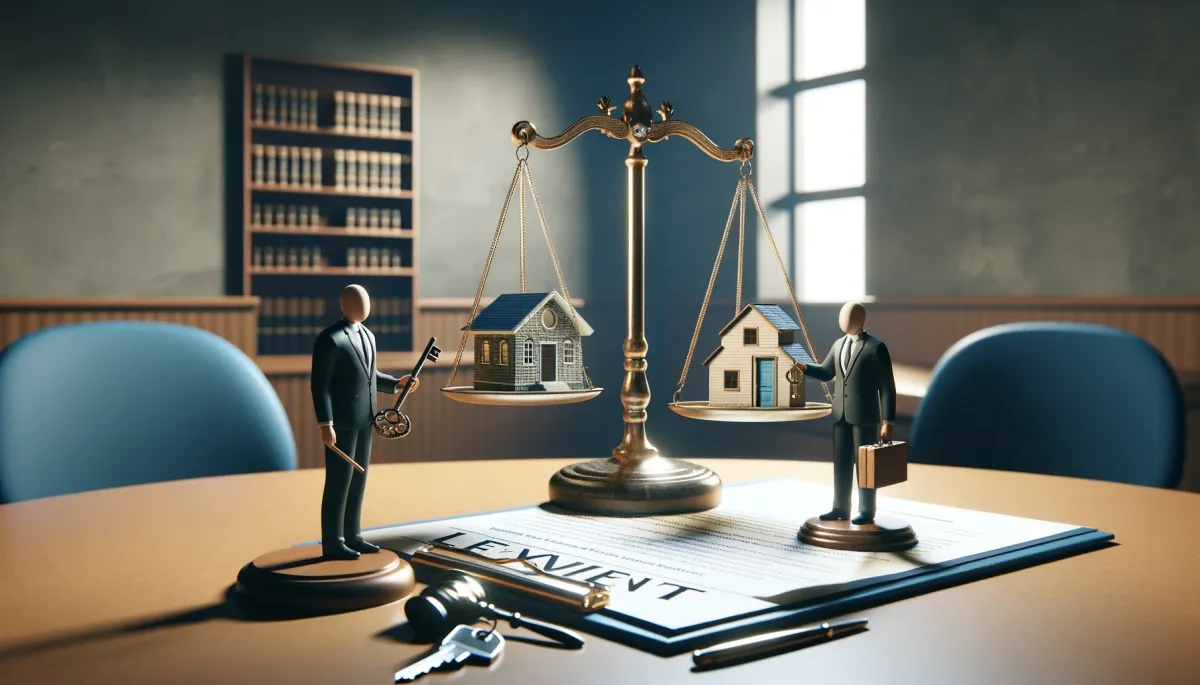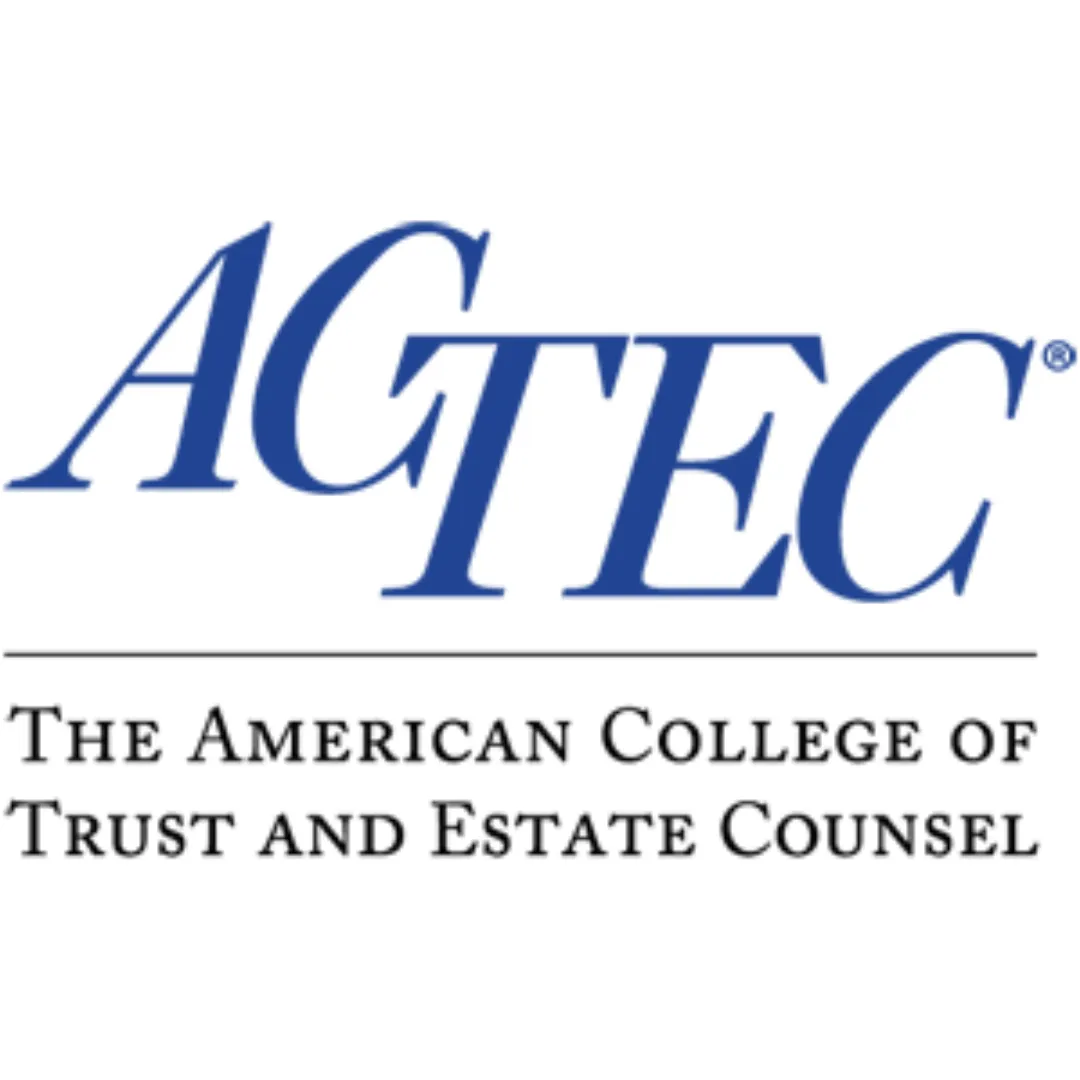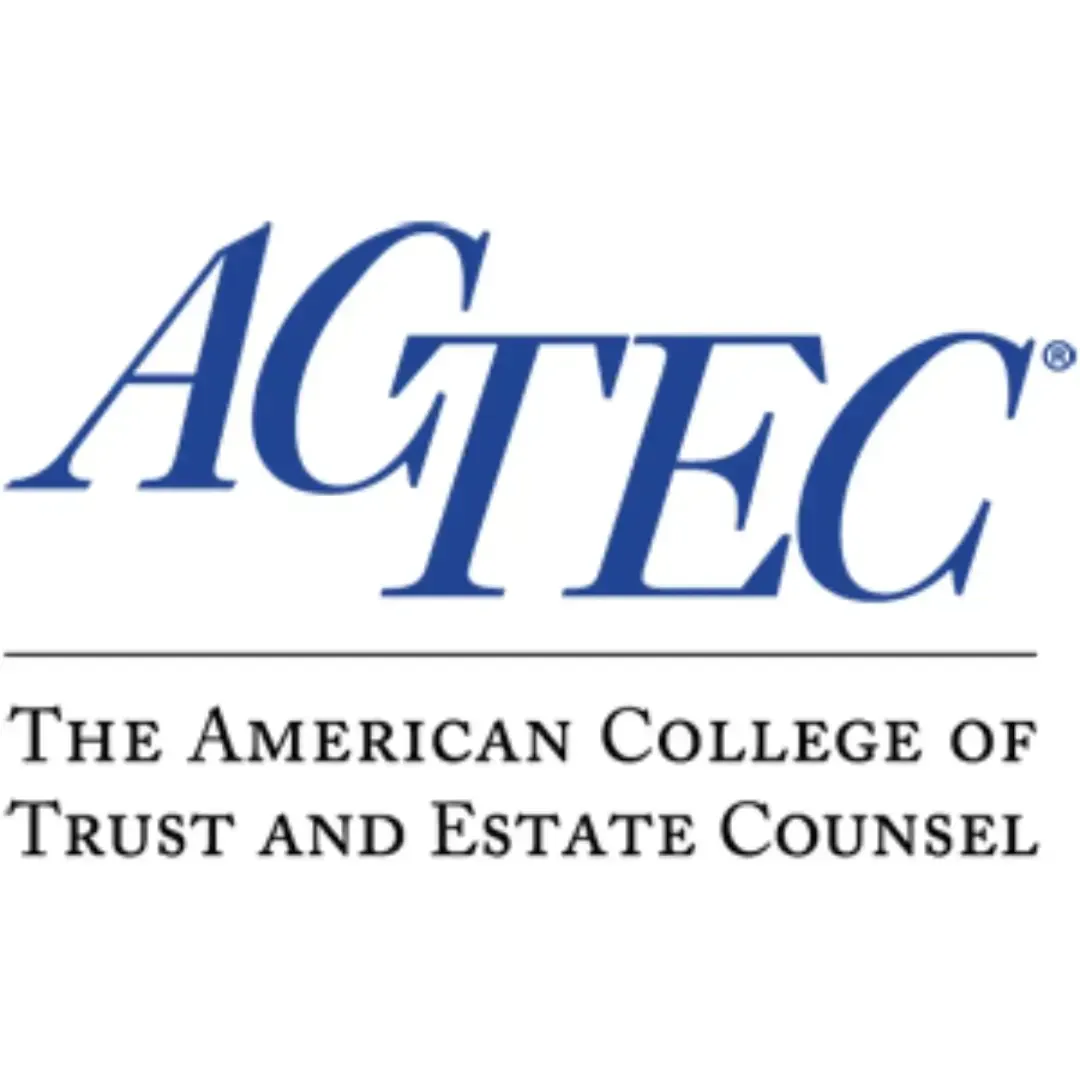
Resolving Landlord-Tenant Disputes: Legal Advice and Expert Tips
Conflicts between landlords and tenants are almost as old as property rental itself. But, just as centuries-old disputes get resolutions, so can yours. The path to peaceful coexistence may seem tricky, but it's easier than you think when armed with the right legal advice and expert tips. It's high time we untangled the complex knots of landlord-tenant disputes together. In this blog post, our expert team at Moye Law Office will guide you through efficient strategies to reach amicable solutions and help maintain a harmonious relationship between landlords and tenants. We'll cover everything from understanding your rights to exploring resolution methods that suit your unique situation. Let's dive into the world of effective dispute resolution - no law degree required!
When facing landlord-tenant disputes, it is important to address the issue promptly and follow appropriate legal procedures. Begin by reviewing your lease agreement and understanding the rights and responsibilities of both parties. Open communication is key, so consider discussing the matter with your landlord or tenant to find a mutually acceptable resolution. If the issue remains unresolved, you may want to seek legal advice or mediation services. Remember, each situation is unique, so it is recommended to consult with a qualified attorney who specializes in landlord-tenant law for specific guidance tailored to your circumstances.

Common Landlord-Tenant Disputes
Landlord-tenant disputes are an unfortunate reality that can arise due to various reasons. Some of the most common issues that tenants and landlords find themselves embroiled in include late rent payments, property damage, lease violations, maintenance and repairs, and noise complaints. These disputes can often lead to strained relationships and legal battles if not addressed promptly and effectively.One particular type of dispute that tends to cause significant friction between tenants and landlords is late night noise complaints, which can disrupt peaceful living conditions for all parties involved.
Late Night Noise Complaints
Late night noise complaints can be a major source of frustration for both tenants and landlords. While some level of noise is expected in multi-unit buildings, excessive disturbances during late hours can significantly impact the quality of life for other residents. It's crucial to address these complaints promptly to maintain a harmonious living environment.When dealing with late night noise complaints, it's essential for landlords to establish clear policies and boundaries for tenant behavior. An initial step can be urging the affected parties to communicate directly and attempt to resolve the issue amicably. However, if the conflicts persist or become too stressful for the landlord to manage personally, it may be necessary to intervene more formally.Some strategies that landlords can consider include asking tenants to put their complaints in writing, maintaining records of incidents, sending letters addressing specific complaints, or even issuing formal warnings as per the terms of the lease agreement. It's also advisable to encourage all parties involved to consider how their actions affect others and find mutually agreeable compromises.For instance, suppose there is a tenant who persistently hosts loud parties into the early hours of the morning despite multiple requests to keep noise levels down. As the landlord, you might need to take more decisive action such as issuing warnings or enforcing penalties outlined in the lease agreement.While addressing late night noise complaints is crucial for maintaining a peaceful living environment, it's also important to handle evictions properly and within the bounds of the law. Let's explore this topic further.
Late night noise complaints can be a significant source of frustration for both tenants and landlords. To address these complaints, landlords should establish clear policies and boundaries, encourage communication between affected parties, and intervene formally if necessary. Strategies such as asking for written complaints, maintaining records, sending letters, and issuing warnings can help manage the situation. It is also important to handle evictions properly and within the bounds of the law. Overall, addressing late night noise complaints promptly is essential for maintaining a harmonious living environment.
Handling Evictions
Evictions can be challenging and emotionally charged for both landlords and tenants. When all other avenues have been exhausted, and there is no resolution in sight, eviction may become necessary. Understanding the legal process and following it meticulously is crucial to ensure a smooth eviction process.Landlords should begin by reviewing their lease agreement and state/local laws regarding evictions. This will provide a clear understanding of the rights and responsibilities of both parties involved. Serving proper notice to the tenant is an essential step, outlining the reason for eviction and giving them ample time to rectify the situation or vacate the premises.Legal support can greatly assist landlords in navigating the intricacies of evictions, ensuring compliance with all regulations. It is highly recommended to consult with an attorney specializing in landlord-tenant law to guide you through the entire process, from filing an eviction complaint to appearing in court if necessary. Handling evictions with professionalism and within the boundaries of the law helps protect both your interests and your reputation as a landlord.
A 2020 study by the National Landlords Association found that around 20% of landlords had experienced disputes with tenants in the past twelve months.According to the American Arbitration Association, almost 60% of landlord-tenant disputes were resolved through mediation or other forms of dispute resolution in 2022.Data from the U.S. Department of Housing and Urban Development shows that noise complaints represent approximately 30% of all tenant-related issues reported to landlords in multi-unit residences.
Preventive Measures and Conflict Resolution
While it's impossible to entirely eliminate conflicts between landlords and tenants, taking preventive measures can significantly reduce the likelihood of disputes arising in the first place. By establishing clear policies and boundaries, landlords can create a harmonious living environment for tenants while protecting their own interests.A well-drafted lease agreement is fundamental in setting expectations for both parties involved. Clearly outline rules regarding noise levels, maintenance responsibilities, pet policies, guest policies, rent payment due dates, late fees, and any other pertinent information specific to your property. This ensures that tenants are aware of their obligations from day one.Responsive communication also plays a vital role in conflict resolution. Encourage open lines of communication with tenants by providing multiple channels for reporting issues or seeking clarification on policies. Promptly address complaints or concerns raised by tenants to prevent escalation or prolonged disputes.Implementing a system for documenting maintenance requests and repairs is also crucial. Keeping a record of all communication and actions taken can serve as evidence in case disputes arise in the future. This helps create transparency and trust between landlords and tenants.By taking preventive measures, establishing clear policies and boundaries, and actively engaging in conflict resolution, landlords can proactively manage their rental properties and foster positive landlord-tenant relationships. However, it's essential to remember that conflicts can still arise despite best efforts. In such cases, seeking legal advice and professional mediation services may be necessary to find a fair and satisfactory resolution.
Establishing Clear Policies and Boundaries
Establishing clear policies and boundaries from the start is crucial in avoiding potential landlord-tenant disputes. By clearly communicating expectations, responsibilities, and guidelines, both parties can maintain a harmonious relationship throughout the tenancy.For example, landlords should provide tenants with a well-drafted lease agreement that outlines rental terms, payment due dates, maintenance responsibilities, and any other pertinent clauses. This ensures that both parties have a clear understanding of their rights and obligations.Open communication is key to resolving conflicts before they escalate. Landlords should make themselves accessible to tenants and encourage them to report any issues promptly. Likewise, tenants should address concerns or repair requests in a timely manner to prevent further complications.By setting proactive policies around noise levels, pet ownership, parking regulations, and common area usage, landlords can help prevent misunderstandings and foster a respectful living environment for all tenants.
Legal Aspects of Landlord-Tenant Disputes
Despite best efforts to establish clear policies and maintain open communication, conflicts between landlords and tenants may still arise. In such cases, it's important to understand the legal aspects involved in resolving these disputes.One of the primary legal considerations is ensuring both parties comply with applicable housing laws. Landlords must adhere to local rent control regulations (if applicable), provide habitable living conditions as mandated by law, respond promptly to repair notices, and fulfill specific requirements such as maintaining functional plumbing systems.Similarly, tenants also have legal responsibilities, which typically involve paying rent on time, keeping the property clean and well-maintained within reasonable wear and tear limits, and notifying the landlord about necessary repairs in a timely manner.Eviction proceedings are another legal aspect that may need to be addressed in landlord-tenant disputes. In certain situations where there are breaches in lease agreements or nonpayment of rent, landlords may need to follow specific eviction processes outlined by state or local laws. These procedures usually involve providing tenants with formal eviction notices and allowing them a reasonable amount of time to rectify the issue or vacate the premises.For instance, in New York, landlords are required to provide tenants with a 30-day notice for eviction in most cases, except for nonpayment of rent where a 14-day notice is sufficient.Additionally, both landlords and tenants must be aware of housing discrimination laws to ensure fair treatment and prevent any discriminatory practices during the dispute resolution process.
Assistance from Local Agencies in Resolving Disputes
When it comes to resolving landlord-tenant disputes, seeking assistance from local agencies can be a valuable resource. These agencies are equipped with the knowledge and expertise to help mediate disagreements and find equitable solutions for both parties involved. Rather than navigating the complexities of legal proceedings alone, turning to these agencies can provide guidance and support throughout the resolution process.Picture this: You're a tenant who has been experiencing persistent issues with your rental property, such as mold growth or a malfunctioning heating system. Despite your efforts to communicate with your landlord, the necessary repairs have not been made. Frustration mounts, and you start considering legal action. However, before taking that route, reaching out to a local agency can offer an alternative path towards resolution.Local agencies specializing in landlord-tenant disputes often have knowledgeable staff members who understand the intricacies of housing laws and regulations specific to your area. They can guide you through proper procedures, help you understand your rights and responsibilities as a tenant, and provide advice on how to approach conversations with your landlord in an assertive yet diplomatic manner.Additionally, these agencies may offer mediation services where a neutral third party facilitates communication between landlords and tenants to reach a mutually agreeable solution. Mediation can be particularly effective when emotions run high or communication breakdowns persist, helping parties find common ground and avoid costly legal battles.It's important to note that while local agencies can be an excellent resource for resolving disputes, their role is primarily advisory and mediation-based. They do not have the authority to enforce decisions or pass judgments like a court would. However, their involvement can lay the groundwork for productive negotiations and potentially prevent issues from escalating further.Now, let's explore the role of Colorado Housing Connects—a local agency that focuses on assisting Coloradans facing housing-related challenges—in resolving landlord-tenant disputes.
Role of Colorado Housing Connects
Colorado Housing Connects is a helpline established to provide support for both renters and homeowners in Colorado, addressing the housing needs of individuals facing eviction, foreclosure, or other challenges. With a mission to connect Coloradans with necessary resources and information, this agency plays a crucial role in resolving landlord-tenant disputes throughout the state.As the housing market continues to present challenges for renters, Colorado Housing Connects recognizes the importance of offering guidance and assistance to those navigating complex landlord-tenant relationships. They provide valuable advice on understanding leases, tenant rights, and responsibilities, as well as strategies for effective communication with landlords. Their goal is to help tenants address issues proactively and improve their living situations.Furthermore, Colorado Housing Connects can offer referrals to legal aid services when needed. If a dispute escalates beyond what mediation can resolve, they can connect tenants with attorneys who specialize in housing law. This ensures that individuals have access to appropriate legal representation should their case require it.Let's say you're a tenant dealing with an unresponsive landlord who has failed to make necessary repairs despite your repeated requests. By reaching out to Colorado Housing Connects, you could receive guidance on how to communicate effectively with your landlord and even be connected with an attorney if legal action becomes necessary.Whether it's answering questions, providing resources, or connecting tenants with relevant services, Colorado Housing Connects is dedicated to empowering individuals throughout the process of resolving landlord-tenant disputes.
Importance of Public Housing Authority
The existence and involvement of the Public Housing Authority (PHA) play a crucial role in resolving landlord-tenant disputes. As an independent government agency, the PHA is responsible for overseeing public housing programs and ensuring fair treatment for both tenants and landlords.The PHA serves as a valuable resource for tenants by providing information about their rights, responsibilities, and options for recourse when facing issues with their landlords. They can offer guidance on navigating the complex world of housing laws and regulations, helping tenants understand their legal protections and potential courses of action. For instance, if a tenant is experiencing problems with their landlord, they can reach out to the PHA for assistance in mediating the dispute or obtaining necessary support.Let's say you find yourself in a situation where your landlord fails to make essential repairs despite multiple requests. You may feel helpless and unsure about how to enforce your rights as a renter. In such cases, the PHA can step in as an advocate, ensuring that your concerns are addressed and that your living conditions meet the required standards.The PHA also plays a significant role in supporting landlords by providing them with relevant information and resources. Landlords can seek guidance on understanding lease agreements, rental procedures, and tenant-landlord laws. By maintaining open lines of communication with the PHA, landlords can stay informed about proper practices and guarantee compliance with applicable regulations.Furthermore, the PHA offers mediation services to help resolve disputes between tenants and landlords before they escalate into more significant conflicts. Mediation provides an opportunity for both parties to express their concerns, find common ground, and work towards a mutually beneficial resolution. This process helps foster healthier relationships between tenants and landlords while reducing the need for costly legal proceedings.In summary, the Public Housing Authority plays an invaluable role in resolving landlord-tenant disputes by providing essential information, advocacy services, and mediation opportunities. Tenants can seek guidance on their rights and options, while landlords can access resources to ensure compliance with regulations. By utilizing the services offered by the PHA, both parties can work towards resolving conflicts in a fair and effective manner.

FAMILY LAW, DIVORCE & DOMESTIC RELATIONS
Family relationships are complex, and the finances associated with those relationships are often intricate. We have the ability to understand the complexity of those relationships and provide our clients with effective counsel, especially when relationships end in divorce. We handle divorce cases at all income levels and have had particular success with high net-worth cases.
CORPORATE LAW & LITIGATION
Starting and operating a business requires many important decisions. We can help guide you through the process and protect your interests. The issues we handle include business incorporation, breach-of-contract claims, construction law, contractor’s liens, collection of debts, judgment enforcement, non-compete agreements, fraud, partnership disputes, operating agreements, employment matters, and business purchases and sales.


GENERAL CIVIL LAW & LITIGATION
General civil litigation involves seeking compensatory damages for some actual or perceived wrong. However, remedies in civil matters can also include specific performance of a contractual agreement, injunctive or other equitable relief.
REAL ESTATE LAW & LITIGATION
We handle a variety of real estate legal issues, including sales, leasing, financing, contract negotiations, title assurance, landlord-tenant relations and taxes. When litigation is necessary, we represent clients in disputes over construction, mechanic’s liens, easements, boundaries, condemnation and landlord-tenant issues.


LAWYER DISCIPLINARY PROCEEDINGS
Mark Kelley has represented numerous West Virginia attorneys in all stages of the disciplinary process. If you need representation in this area or just want a consultation to help you deal with a complaint, the firm is ready to assist you in the process.
EMPLOYMENT
Employment law encompasses thousands of federal and state statutes, administrative regulations and judicial decisions that cover a wide spectrum of the employer/employee relationship. We handle issues for employees or employers in such areas as collective bargaining, employment discrimination, unemployment compensation, pensions, workplace safety and workers’ compensation.


MEDIATION
The firm offers mediation services for business disputes, estate disputes and domestic relations cases. Mark and Sam have taken basic and advanced mediation courses through the West Virginia State Bar. Mark has mediated numerous cases in the above fields and is available to assist litigants and their attorneys in trying to resolve these often-complicated and contentious matters. Sam generally limits his mediation practice to family law disputes. It greatly enhances the chances of a successful mediation if your mediator has extensive experience dealing with the issues to be mediated.
SINCE 1897
The legal industry can be a difficult one, which is why our team has experience in all aspects. We're confident that we'll exceed your expectations and provide you with the best service possible!
125 YEARS EXPERIENCE
Trusted Legal Experts For Your Business
We have a deep understanding of the legal industry and are able to provide high quality service that will exceed your expectations.
Testimonials
Elizabeth Smith

Mr. Kelley is extremely responsive and knowledgeable when it comes to family law. He and his staff are have done an excellent job handling child custody issues quickly and effectively, highly recommend.
David Log

A very old and established law firm. Great for estate management and general law.
Leslie Richmond

Franki Parsons has been a life saver. Franki goes above and beyond to help you. So easy to talk to and you know she cares. Can't recommend enough.
Testimonials
Elizabeth Smith

Mr. Kelley is extremely responsive and knowledgeable when it comes to family law. He and his staff are have done an excellent job handling child custody issues quickly and effectively, highly recommend.
David Log

A very old and established law firm. Great for estate management and general law.
Leslie Richmond

Franki Parsons has been a life saver. Franki goes above and beyond to help you. So easy to talk to and you know she cares. Can't recommend enough.
If you're in need of legal help, let's talk.
Our lawyers have many years of experience, and are excited to help you with your case. Whatever your legal needs may be, we can provide the experienced legal representation you require. Let's talk about your case and see how we can help you achieve the best possible outcome. Even in circumstances in which we are unable to represent a person, we can often help find another attorney that can. So make us your first contact.
Serving Charleston and the
Kanawha Valley for 125 years
Serving Charleston and the Kanawha Valley for 125 years





Get In Touch
Phone Number:
Address
109 Capitol Street Suite 700
Charleston, WV 25301
Assistance Hours
Mon – Fri 9:00am – 5:00pm
Saturday – Sunday CLOSED







